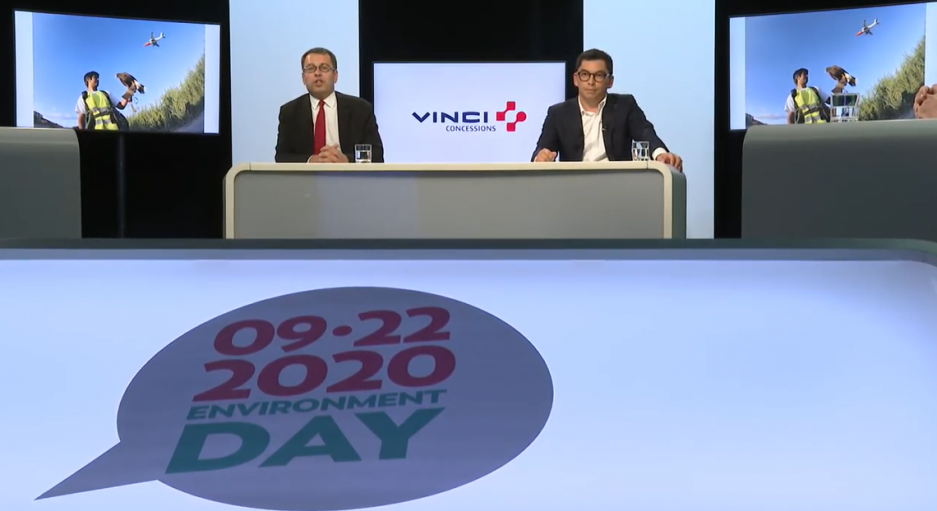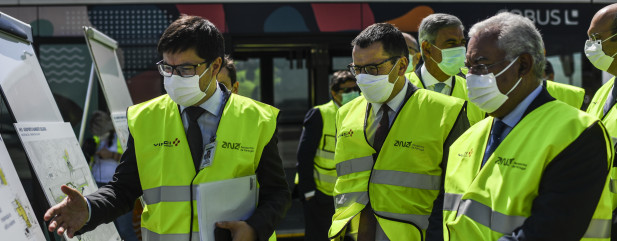
Positive Mobility
eMagCollective intelligence driving sustainable development

The coronavirus crisis is driving us to make ever greater efforts in our continued development of environmental intelligence in business. Our belief in the importance of this development underpins the high standards we have set ourselves for many years. Standards we apply to new solutions that emerge and flourish at the grassroots level, since mobility is an extraordinary source of opportunities and innovations. Our vision of innovations is to ensure that they are sustainable, pragmatic and value-creating, both immediately and in the long term.
Our teams’ active participation is fundamental to this process. Their participation is encouraged through mechanisms such as the recently launched VINCI Environment Awards. An in-house Environment Day has also been put in place for the entire VINCI Group, ramping up efforts to raise the awareness of colleagues across all business lines and inspire them to get involved. The remarkable resourcefulness and spirit of innovation of our colleagues are what drive our transformation, placing VINCI Concessions at the forefront of green transition in the transport industry.
Three key issues have been chosen for the first Environment Day: climate emergency, the circular economy, and protection of natural environments. The three topics all represent priority areas of action. We are already seeing the emergence of initiatives and projects in these fields, some of them aiming for disruptive changes to working practices in our various sectors of activity.
Standout examples include the installation, at the start of the year, of a solar power plant at Salvador Bahia airport, making it the first Brazilian airport to include infrastructure that generates a portion of its own energy needs. The power plant will eventually cover over 30% of the terminal’s power consumption, generating annual reductions in CO2 emissions of around 690 tonnes and helping the airport to cut its carbon footprint by 30%.
When it comes to fighting to protect biodiversity, our concession operations are rolling out large-scale actions to preserve natural spaces and protected species. The South Europe Atlantic high speed line (SEA HSL), linking the French cities of Tours and Bordeaux, has seen extensive efforts in this field, with various initiatives during construction and in operation to avoid or limit possible impacts the line may have on the 14 Natura 2000 sites it crosses, home to over 200 protected species. Compensatory measures have been put in place, with several hundred sites established as havens for species impacted by the new line, representing a total of 3,800 hectares set aside. Another example is in Greece, where VINCI Concessions demonstrates the same levels of care and commitment to protect wildlife, particularly for bats in a Natura 2000 site alongside the Athens-Patras highway. And in the circular economy domain, London Gatwick airport has already reached a number of major milestones, with recycling and reuse rates among the highest of any airport anywhere. A significant amount of energy is sourced from organic waste that is collected and incinerated in a biomass boiler.
Project after project, everybody at VINCI Concessions devotes their energies and collective intelligence to innovations that are environmentally responsible, giving real meaning and depth to positive mobility.
Nicolas Notebaert, Chief Executive Officer of Concessions at VINCI, President of VINCI Airports and VINCI Autoroutes

After the health crisis: the environmental imperative
As I write this editorial, four billion people are, or have been, living under lockdown in response to the Covid-19 ...
Discover